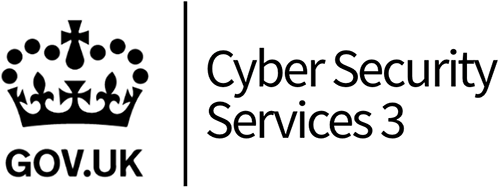Operational Resilience
Preparing for the unexpected
Operational disruptions can strike without warning. They impact service delivery, customer satisfaction, and long-term goals. From cyber incidents and tech failures to supplier delays and staffing shortages, today’s risks are more frequent and complex than ever.
Toro helps organisations build Operational Resilience by ensuring critical functions continue and recovery is fast, no matter the challenge.
Free consultation

Protect your business. Build trust. Unlock growth.
What is Operational Resilience?
Operational Resilience is the capacity of an organisation to maintain the delivery of essential services during disruptions. It is based on the idea that not all risks can be prevented. Instead, organisations must be able to anticipate problems, respond effectively, and recover quickly.
Unlike traditional risk management, which often focuses on avoiding specific threats, operational resilience assumes that incidents will occur. It focuses on protecting key services, developing flexible processes, and preparing teams to adapt under pressure. It also brings together multiple disciplines, including business continuity, cyber, physical and travel security and third-party risk management.
Why it matters
In a world where every second counts, business continuity planning is essential for both survival and growth. Here’s why it should be at the top of your strategic priorities:

Continuity of critical services
Maintain the ability to deliver essential services and products, even when core systems or resources are compromised.

Regulatory compliance
Meet industry requirements that increasingly demand a structured and tested approach to operational resilience.

Reputation protection
Demonstrate preparedness and competence when facing unexpected events.

Customer confidence
Maintain trust by continuing to deliver reliable service, regardless of external conditions.

Cost efficiency
Reduce the long-term financial impact of incidents by avoiding extended downtime and delays.
Managed Security & Consultancy
People focussed
At Toro, people are at the core of everything we do – our team, our clients, and the partners we collaborate with.
We prioritise building trusted relationships, delivering consistently high standards, and providing tailored support that reflects the unique needs of every client.
Free consultation
Key elements of Operational Resilience
Effective Operational Resilience is built on planning, preparation, and continuous improvement. Key elements include:
Identifying critical operations
Start by mapping essential services and the dependencies required to support them. Identify which systems, staff, suppliers, and technologies are vital to core operations.
Building scenario-based response plans
Develop clear plans for different types of incidents including cyberattacks, third-party data breaches, system outages, supply shortages or natural disasters. Each plan should outline roles, communication protocols, and recovery procedures.
Technology and system resilience
Ensure infrastructure is designed to recover quickly. This includes system redundancy, strong cyber security, data backups, and potentially cloud-based services that allow for flexibility and scalability.
Workforce continuity
Support staff through cross-training, remote work capabilities, and health and safety protocols that allow critical teams to remain operational during a crisis.
Supplier and third-party resilience
Assess the risks associated with external partners. Identify key suppliers and establish alternative arrangements to reduce dependency on any single point of failure.
Regular testing and continuous improvement
Operational Resilience is not static. Plans should be reviewed and tested regularly through simulations and exercises. Lessons from real incidents should be used to update strategies and close gaps.
Managed Security & Consultancy
How Toro supports Operational Resilience
Toro works with organisations across sectors to build Operational Resilience through tailored, practical strategies. Our work is based on clear frameworks, tested methodologies, and a deep understanding of security, cyber and operational risk.
Our services include:
- Operational Risk Assessment and Gap Analysis
Evaluate your current level of preparedness and identify areas that require improvement. - Business Impact Analysis (BIA)
Assess how disruptions would affect your organisation and which services must be prioritised during recovery. - Resilience strategy design and implementation
Develop and implement a structured approach to Operational Resilience aligned with your business goals. - Technology, infrastructure and supplier auditing
Review the resilience of your IT systems, networks, supply chain, and processes to identify potential points of failure. - Resilience testing and training
Conduct simulations and exercises that allow teams to rehearse responses and identify weaknesses before a real event occurs.


Why Toro?
Toro offers practical experience and deep technical knowledge in business continuity, cyber security, physical security, people and risk management. We work with regulated industries, critical infrastructure, and complex global organisations.
- Adversary-informed approach
We consider how attackers operate to build defences and response strategies accordingly. - Integrated security model
Our approach brings together cyber, physical, and operational risks into a single coordinated program. - Experienced team
Our professionals have backgrounds in risk management, security, IT security, emergency planning, and resilience engineering. - Tailored support
We adapt our services to your specific needs, regulatory environment, and internal structure.
Operational Resilience FAQs
Business Continuity plans typically focus on preparing pre-planned responses to a disruptive event. Operational Resilience focusses on withstanding and being able to adapt to any disruptive event. Whilst both aim to ensure an organisation continues to function during disruptive events, they differ in approach and scope.
Plans should be tested at least once a year. Additional testing may be necessary after major organisational changes or significant incidents.
Cyber incidents are one of the leading causes of operational disruption. A strong operational resilience strategy must include measures to prevent, detect, and respond to cyber threats.
While all sectors can benefit, it is particularly important in financial services, healthcare, utilities, government, and manufacturing, where continuous service is critical.
In many industries, yes. Regulators in finance, energy, and other sectors now require organisations to maintain Operational Resilience frameworks and conduct regular reviews and reporting.
Operational Resilience should be a shared responsibility across multiple departments, but leadership typically sits with risk, compliance, or business continuity teams. Senior management must support and oversee the strategy, while departments such as security, IT, operations, HR, and procurement all play key roles in implementation and response.
The timeline depends on the size and complexity of the organisation. A basic framework can be developed within a few months, but full implementation including analysis, planning, testing, and integration across departments may take six to twelve months or longer. Regular updates and improvements are ongoing beyond initial rollout.
Managed Security & Consultancy
Get started with Toro
Being prepared is no longer optional. If you are reviewing your organisation’s ability to handle disruption or need guidance on building a stronger Operational Resilience framework, we can help.
Contact Toro today to schedule a consultation or request a resilience assessment.
What our Converged Security clients say

Converged Security insights
Expert Insights on Converged Security, Risk and Resilience

How Modern Threat Actors Really Operate
Security attacks begin long before a breach. Learn how attackers assess risk, exploit people and places, and why converged security stops threats earlier.

Why real resilience happens when teams actually talk to each other
Resilience isn’t built on plans alone. Learn how breaking down silos, improving communication and connecting people strengthens real organisational resilience.

2025 end of year wrap up
Toro’s Directors look back on the defining security moments of 2025 and share lessons, highlights and guidance for organisations heading into 2026.
Our Converged Security Partners
Brands & companies we work with









Managed Security & Consultancy
People focussed
At Toro, people are at the core of everything we do – our team, our clients, and the partners we collaborate with.
We prioritise building trusted relationships, delivering consistently high standards, and providing tailored support that reflects the unique needs of every client.




















